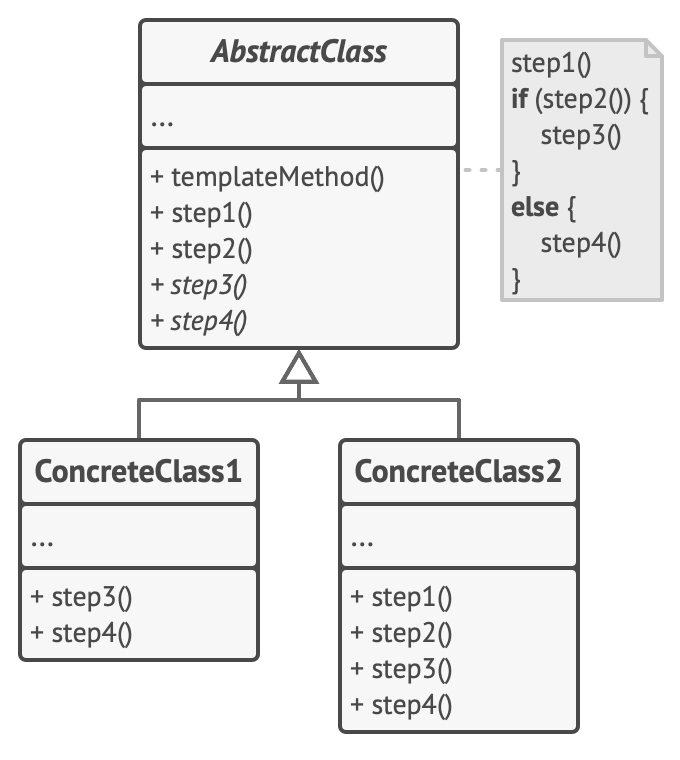Template Method Pattern
Contents
The Template Method pattern aims to encapsulate the "things that vary", whilst outlining a common procedure.
They allow us to put generalised (abstract) methods in the super class, whose child classes will override.
The template method itself is final-ised, allowing only the steps in the method to be changed
Example
Coffee / Tea maker
A coffee maker would have the steps:
- Boil water
- Brew coffee
- Pour cup
- Add sugar
Whereas a tea maker would have the steps:
- Boil water
- Steep tea
- Pour cup
- Add lemon
In either case, we see that we have the common steps, "Boil water", and "Pour cup".
By using the Template Method pattern we can unify the common steps, for example through a make method.
| |
In this semi-pseudo-code, children of this abstract class implement the brew and addCondiments method, with the boilWater and pourCup functionality already implemented. Also note that make has been finalised, and hence the child classes are unable to override its functionality.
